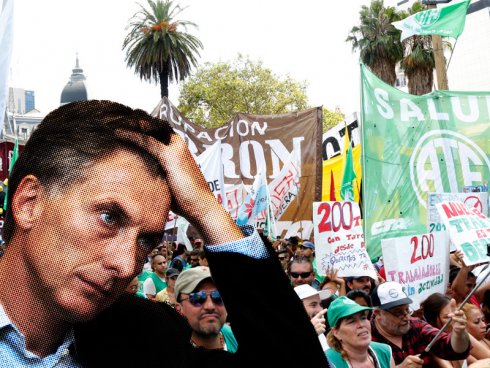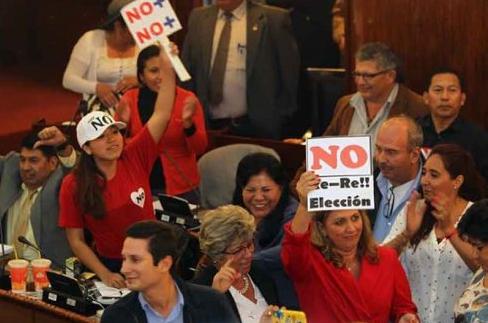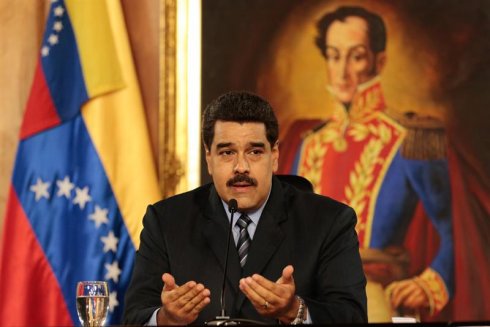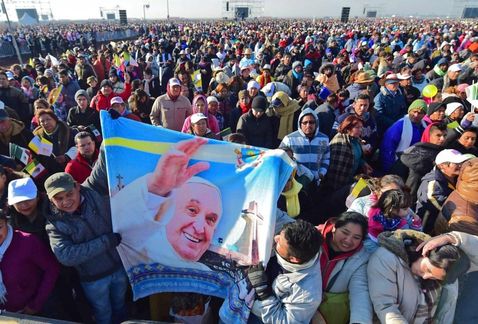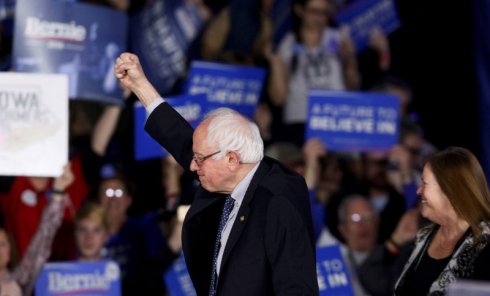US Local Elections
Victory of the Left in Seattle
29/11/2013
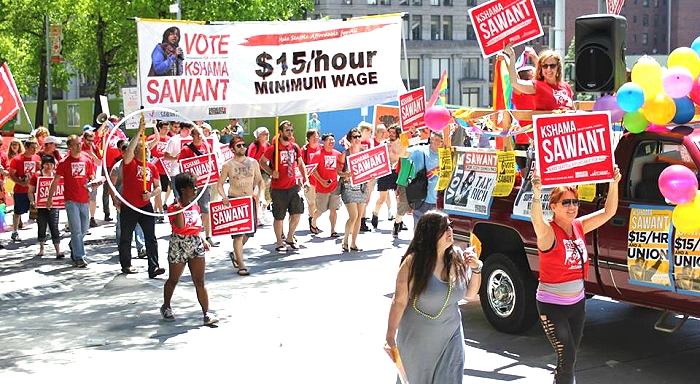
The elections in several states that took place in the US at the beginning of November expressed what several media described as a "turn to the left" in the center of US politics.
The crisis of the two-party system, expressed in the breaks inside the Republican Party and the weakening of its right wing, the Tea Party (see La Verdad Obrera 541), is added to the exhaustion of the Obama administration and the disappointment with the promises that the Democratic Party "did not keep." While unemployment stays above 7%, the government is bailing out the big capitalists and bankers, that have even increased their profits. After six years of an economic crisis (with weak growth in the most recent period), what is palpable in the reality of the US is the increasing economic inequality, the creation of low-paying jobs, miserable wages and growth of a "precariate" [a social class of those who suffer an existence without security or predictability] that works in the service sector, together with a gradual attack on the most concentrated groups of the working class that still keep some conquests. This situation has given rise to the emergence of social phenomena like that of Occupy Wall Street (OWS) and young people who have been making a political experiment, that of the Walmart workers, for the right to self-organization, or that of the fast food workers for a minimum wage of $15 an hour.
This combination of factors was expressed electorally in the main parties, the Republicans and the Democrats, with the victory of the centrists among the Republicans and of the "progressives" among the Democrats. As part of this "turn to the left," the socialist militant Kshama Sawant gave a big surprise; she won a seat on the Seattle City Council. Raising a program centered on the demand for a minimum wage, she represented broad groups of workers with job uncertainty, in addition to winning the sympathy of the OWS young people and a group that is disappointed with the Democrats. Sawant got almost 94,000 votes (50.67%), and she beat her Democratic Party opponent, who had 16 years in that position.
A socialist city councilwoman in Seattle
Kshama Sawant, a militant of Socialist Alternative, a group of the US left, from the Trotskyist tradition, became the first socialist city council member in almost 100 years, for the City of Seattle. And, although it is a local post, this acquires greater importance in the context of a strongly bipartisan system. To this victory in Seattle was also added the very good election outcome of the candidate of Socialist Alternative in Minneapolis (the biggest city of the state of Minnesota), who got 36% of the votes.
Sawant, 41 years old, of Indian origin, appeared with a socialist ballot, and she raised as the main ideas of her campaign, the demand for a $15 minimum wage, rent control and bigger taxes on millionaires, to increase investment in public transportation and education. This program, although limited, won the support of an historically Democratic Party group of voters, disappointed both with Obama’s policy at the national level and with the Democrats in Seattle (where they have historically been in power).
Sawant’s victory shattered two myths: the first, that people in the United States will be afraid of "socialism" (a specter that constantly stirs in a deeply McCarthyite society), and the second, that it is impossible to beat the Democratic Party.
The restrictive democracy of the two-party system
What makes Sawant’s victory significant is the fact that in the United States it is very rare that candidates that are not Republicans or Democrats appear, and, if there are candidates from outside those parties, they are generally "independents," but seldom do male or female candidates from the left get to be nominated, and even less do they openly assert they are socialists. The US electoral system is based on an ultra-restrictive two-party system, where millions of dollars are needed to mount a campaign, and the machines of the Democrats and Republicans, that are nothing more than two wings of the same party of the imperialist bourgeoisie, impose themselves.
There exists a common sense among several groups of the left that, with skepticism, do not see beyond the limits of the two-party system. Many groups of the left, even some that say they are Trotskyists or radicals, end up backing Democratic Party candidates as a "lesser evil," compared to the terror from the right. At most, they have come to back Green Party candidates or some independent candidate like Ralph Nader (who appeared for the last time in the presidential elections of the year 2000, with a very limited program of reforms).
Sawant’s candidacy politically expressed many of the demands of the OWS movement, of the working women and men from the fast food sector, immigrants and workers, that is, those who are giving shape to this "turn to the left," that the media in the US are talking about. Some days after her victory became known, the strike in the Boeing factory began, and the new city councilwoman was one of those invited to address the workers in struggle, and she condemned the employers’ plan to eliminate the workers’ pensions, while management gets million-dollar subsidies from the government. Although she did it with a confused program of "democratic ownership" of the factory, Sawant called on the workers not to leave the plant and to stop building "war machines" (because of the military planes) and to produce public transit vehicles, among other things.
Despite the limited nature of the program of Sawant’s campaign, that took only some basic demands, her victory is encouraging for showing, on a small scale, the potential that politics from the far left could have, if it set out a working-class alternative independent of the Democrats and supported in the workers’ struggle.
Even with the almost non-existent possibilities of presenting a candidacy at the national level, it still remains to be seen how this phenomenon will develop and if the possibility exists that, in view of the crisis of the Republican Party, but, above all, Obama’s exhaustion and the disappointment with the Democrats, an independent alternative to the two-party system can begin to emerge.
November 26, 2013

